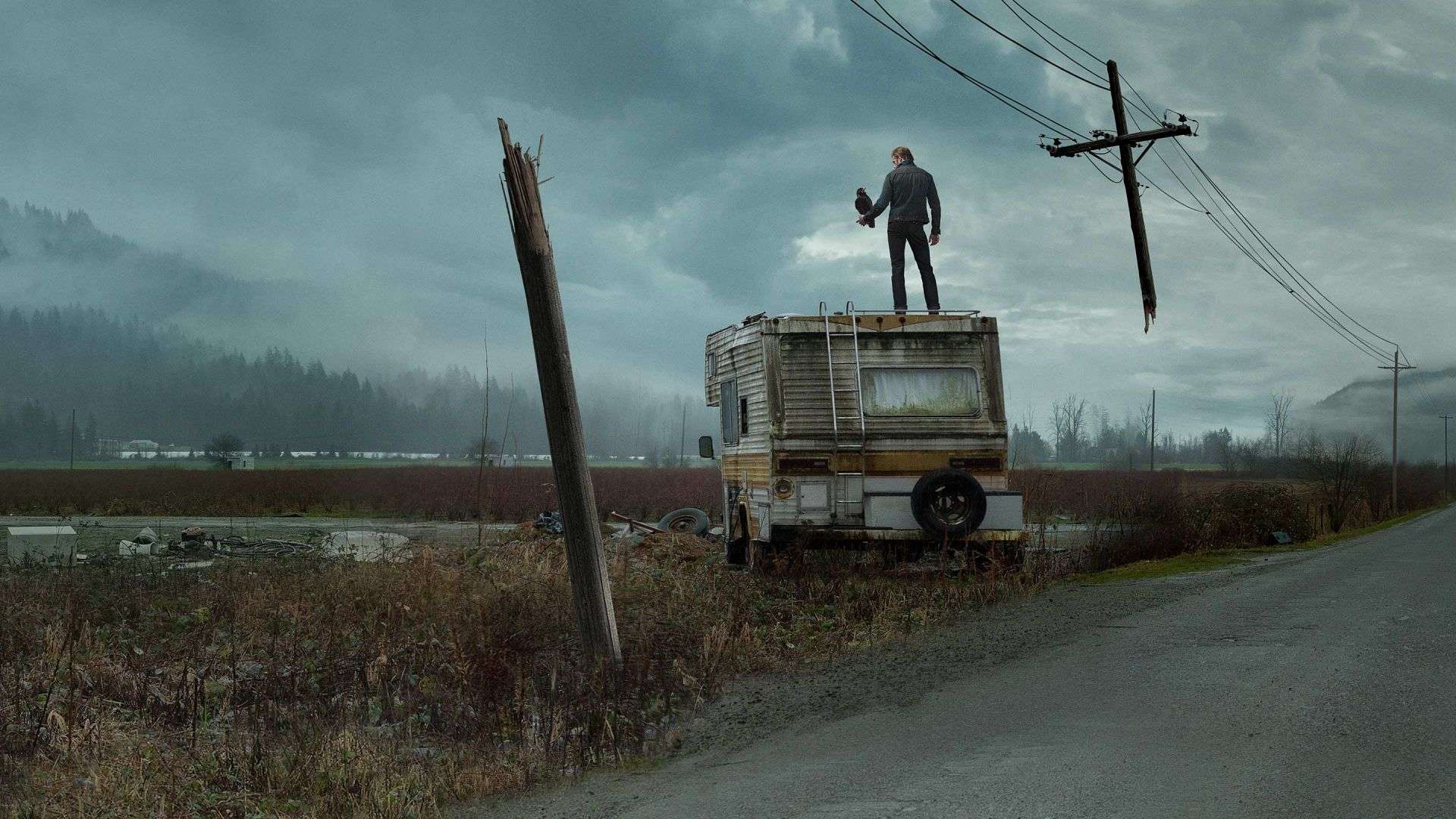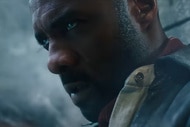Create a free profile to get unlimited access to exclusive videos, sweepstakes, and more!
The Stand reboot is good but not so scary because it diminishes King's most frightening villain: the flu

In March 2020, as the novel coronavirus spread across the globe and shut down life as we knew it, Stephen King sent out a tweet.
“No, coronavirus is NOT like The Stand,” the author wrote of his 1978 novel about a superflu that wipes out most of humanity and the moral stand the survivors make afterward. “It’s not anywhere near as serious. It’s eminently survivable. Keep calm and take all reasonable precautions.”
I’ve often wondered since whether King has thought differently about that statement, through a year when most Americans have been confined to their homes, watching the death toll from COVID-19 rise around the globe into the millions.
I wondered this again while watching The Stand, the CBS All Access limited-run series based on King’s novel that ended this week. This new version started filming in September 2019 and wrapped in early March 2020, just as the pandemic became truly wide-spread and scary for Americans, upon becoming local news. If The Stand's creators had known at the start what we know now, or if they’d been able to make major changes once the real-life pandemic erupted, would they have handled the show’s virus differently?
Somehow the new version manages to exist in a world ravaged by a widespread virus and yet not resonate with the pandemic reality we’ve been living in. All because the narrative shifts the villainy elsewhere.
In the new Stand, the superflu called Captain Trips is practically backstory, a blip before the story gets to the main characters: a camp of the faithful in Boulder, Colorado, led by Whoopi Goldberg’s Mother Abigail, a 106-year-old woman who has an unusually strong connection to God; and a camp of the godless in “New Vegas,” a center of depravity where Alexander Skarsgård’s Randall Flagg has assembled worshippers to feed his own demonic power.
The Stand’s 2020 superflu features symptoms such as exaggerated neck swelling and mania that overtakes some people as they succumb. The original Captain Trips that King wrote is infinitely scarier than this modern iteration, though, because it’s a weapon in the hands of fallible, everyday people who use it against each other in trying to protect themselves. In King's novel, humanity knows better and infects one another anyway — and the CBS version of the story glosses over that point in favor of getting to the action faster.
In all versions, the superflu is a leaked biological weapon developed by the U.S. government that wipes out almost all of the world’s population. In the book — and the 1994 series — the flu would have stayed confined to workers in that facility were it not for a fearful soldier who, in trying to protect his family from infection by running from the lab at the last possible moment, unwittingly spreads the virus to the outside world.
In this new show, though, the breach happens, but the soldier hits the facility lockdown button to seal off the lab and prevent the virus — or anybody else — from getting outside. The reason he flees? Flagg is standing there with his foot holding the door open, giving the soldier enough time to second-guess himself and run for his life — dooming everybody.
That’s my issue with this new version. The flu feels less scary because its initial spread was out of our control. The “dark man,” as Mother Abigail’s followers call Flagg, intentionally unleashed it. In King’s original version, we did this to each other through mundane means — our own fear and selfishness masquerading as good intentions, just like we’re doing right now by choosing not to wear masks or have Super Bowl parties.
And that, to me, is much scarier, because a year later, we’re still living it.
When King tweeted about the coronavirus not being like The Stand, it hit home because I had been thinking about that book and the '90s mini-series a lot. Were we, I wondered in those nihilistic moments, really in the end times? I watched it again. What I found was truly terrifying because what was happening on the screen felt like it mirrored what was happening in real life.
In the 1994 Stand, we see the same denial about the superflu that we’ve been seeing during our real pandemic. In the show, a reporter asks a man on the street why he’s wearing a mask.
“I don’t know,” the man says. “It just feels safer.”
“OK, thank you,” the reporter says, turning back to address the camera. “The folks at the Atlanta Disease Control Center told me that these masks wouldn’t stop a flu germ with a hangover.”
Later, a reporter says: “Reports of the supposedly lethal flu epidemic continue to spread. Many downtown shopping areas in southern Florida are virtually empty this morning, and the flu rumor actually seems to be gaining credence from health officials.” But the government — which even in King’s imagination in 1978 did not protect citizens from a pandemic — denies the outbreak. The report continues, quoting a top official: “Dr. Herbert Deninger said ‘let me put it in five simple words: Captain Trips does not exist.’” Panic spreads as hospitals overflow and people receive conflicting advice.
That 1994 version hit so hard at the center of my fears, and reflected so strongly what has been happening to us, that I was expecting the same kind of on-the-nose reflection in the 2020 version. It just wasn’t there, not only because this version downplays the virus in general, but because it downplays our role in spreading it. That’s why I wonder: if filming had been shifted even a few weeks, getting caught in a temporary production shutdown and then resuming later with quarantine protocols in place like so many other shows and films, how would its treatment of the pandemic have changed? Would Flagg really be the baddest bad guy anymore?
Don’t get me wrong. I enjoyed the 2020 version very much. But overall, I spent more time laughing at the new moments of levity and dry humor it added than I did being scared.
That, I think, is because of the way this new version minimizes human nature and our own role in creating the problem. It was always about good vs. evil, but the new version of The Stand leans so heavily into the war between darkness and light that it eliminates the gray area where people have free will. The characters are essentially chess pieces being moved by Mother Abigail or Randall Flagg, most clearly evidenced in the changes this version makes to the character of Flagg’s “queen,” Nadine (Amber Heard). Here, she’s groomed by Flagg starting in her adolescence and goes to Boulder to be his spy, rather than her original character’s storyline of feeling like an outcast among the faithful and choosing the dark on her own.
In making such clear-cut distinctions between good and evil, the new show eliminates the crucial center of the novel: That people can be morally ambiguous. They can feel conflicted about which side they belong on, and they can then choose, despite their mistakes, to follow a better path — or not. When Nadine ultimately decides she made the wrong choice, it made sense in past versions, but here it was harder to believe.
As we enter the second year of the COVID-19 pandemic, we’re seeing firsthand how complex, inconsistent, and damaging our morally ambiguous agency can be. Many people don’t fully adhere to safety protocols, which are often inconsistently conveyed and enforced. There’s widespread denial that the pandemic is a problem and distrust of the solutions. In America, at least, much of the response to COVID-19 is framed as a matter of personal choice. There are many who are choosing, either intentionally or unwittingly, to prolong this pandemic and widen the chasm between those who are being strict with their safety and those who aren’t.
Stephen King himself penned the final episode of the new series, which happens after the book’s storyline ends. Once again, his version is uncannily prescient. “The wheel turns. The struggle continues,” a character says in the final words of the show. “And the command is always the same… Be true. Stand.”
Just remember, in the real world, the choice to stand or not rests entirely with us.
The views and opinions expressed in this article are the author's, and do not necessarily reflect those of SYFY WIRE, SYFY, or NBCUniversal.


























